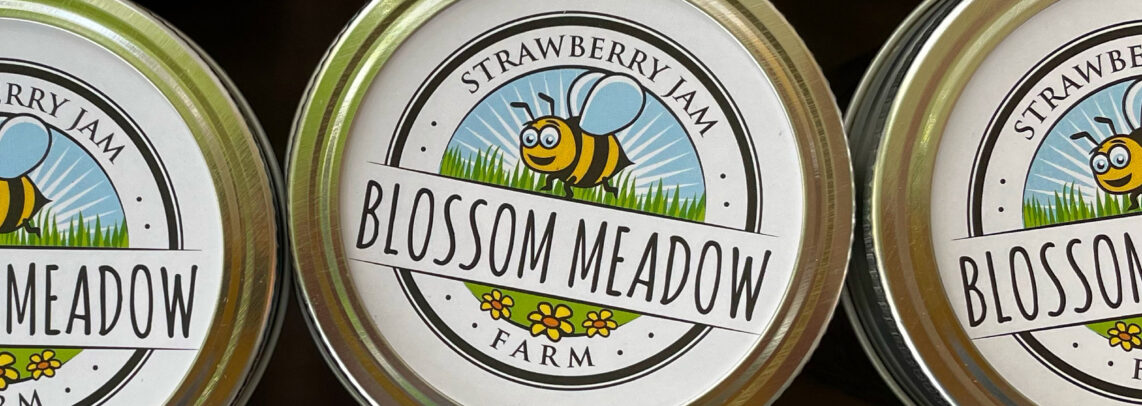Hard work, happy pollinators and a healthy ecosystem make Blossom Meadow Farm a success. This journal highlights some of things we’ve learned through this crazy adventure.
Eastern Carpenter Bees (Xylocopa virginica)
We need to mitigate global pollinator decline by figuring out how to actively rear and manage lesser known and underappreciated pollinators so that farms and natural ecosystems can be sustained. Xylocopa is a promising taxa of cavity nesting bees. The Eastern Carpenter Bee (Xylocopa virginica) is found throughout the New England states to Kansas and… Read more Eastern Carpenter Bees (Xylocopa virginica)
What is a Fully Shielded Light Fixture?
The following excerpt from the Flagstaff Arizona Code details the differences between full shielded, partially shielded, and unshielded fixtures. These definitions are universal. Flagstaff Arizona Code; Division 10-80.20: Definition of Specialized Terms, Phrases, and Building Functions Fixture, Fully Shielded: A light fixture or luminous tube constructed and mounted such that all light emitted by the fixture or tube,… Read more What is a Fully Shielded Light Fixture?
Switch to Amber Light
Why Amber Light? Blue/white light creates more light pollution than any other light spectrum. For your exterior lighting needs, switch to amber* colored light for a warm soft glow and full cutoff** light fixtures equipped with motion detectors. The benefits are numerous! Try CREE Lighting Smart LED Bulbs – program them to 2200K and… Read more Switch to Amber Light
International Flavor Award Winner and Blue Ribbons at Local Competitions
OUR JAMS WON AWARRDDDS!!!!! THIS IS SO EXCITING AHHHH! Blossom Meadow Farm Red Raspberry Jam won third place at the International Flavor Awards! With entries from 10 countries this year, competition for an International Flavor Award was fierce. All jams were judged blindly by a panel of restaurateurs, purveyors, manufacturers and members of the food-centric… Read more International Flavor Award Winner and Blue Ribbons at Local Competitions
Bee Rancher Guest Spot: The Del Grosso Family
The following observations were made by bee ranchers John, Fran, and Tara Del Grosso in Islandia, New York for the 2021 mason bee season. Go Bees! Initially there was trepidation over the condition of the cocoons. The humidity in the refrigerator crisper was overlooked for about two months and the cocoons were “crispy”. We feared… Read more Bee Rancher Guest Spot: The Del Grosso Family
Ban Honey Bees from Protected Lands
Honey bee hives should be banned from parklands, open space, and conservation easements in order to protect resident native bee populations and overall ecosystem health. As all honey bees in the United States are an invasive, non-native species, they should be recognized as livestock and only appropriate to pollinate large scale, single crop agriculture where… Read more Ban Honey Bees from Protected Lands
Blue Winged Wasps
Wasps are important pollinators although way less efficient because they are generally not covered with fuzzy hairs. Wasps feed on nectar at flowers for their personal energetic needs (carbs) and search for prey (protein) or hosts (for parasitic young). Blue Winged Wasps (Scolia dubia) are an interesting case study. They live in the ground and… Read more Blue Winged Wasps
Two Good Food Awards!
Blossom Meadow Farm was awarded TWO Good Food Awards!!!! Both our Strawberry Jam and Red Raspberry Jam won a 2020 Good Food Award, a nationwide competition sponsored by the Good Food Foundation. With over 2,000 entries each year, the competition is fierce for a Good Food Award. Of the hundreds of entries submitted in the preserves category, Blossom… Read more Two Good Food Awards!
Plant Real Trees
Large native trees add to the character of a neighborhood, provide food and refuge for birds, and even help curb climate change. Planting trees is an easy way to make our lives better, and compounds with every year of growth. Unfortunately, homeowners and government entities have been replacing trees felled by storms and development, which… Read more Plant Real Trees
We are Good Food Award Finalists!
Southold, NY (November 5, 2019) – Blossom Meadow Farm’s Strawberry Jam and Red Raspberry Jam were named as 2020 Good Food Finalists by the Good Food Foundation and are now in the running for a 2020 Good Food Award (full press release). With over 2,000 entries each year, the competition is fierce for a Good Food Award. Of the hundreds of entries submitted in the… Read more We are Good Food Award Finalists!

